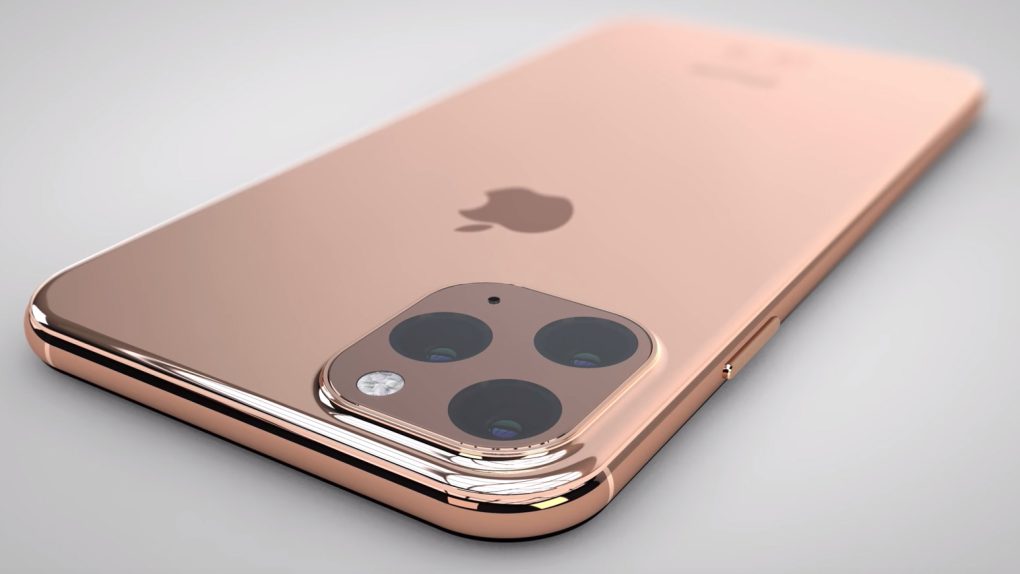Another day, another potential iPhone 11 leak. We already know so much about Apple’s upcoming next-generation iPhone models. The iPhone 11, iPhone 11 Max, and iPhone 11R (or whatever Apple ends up calling it) are basically shaping up to be “S” upgrades to last year’s “S” upgrade. We’ve seen this before when Apple launched the iPhone 7 that looked just like the iPhone 6s and iPhone 6 but packed some new finishes and a new camera to encourage upgrades. The iPhone 11 and iPhone 11 Max will look just like the iPhone XS, iPhone XS Max, and iPhone X that came before them, but they’ll have an upgraded rear camera system with three lenses instead of two. The new iPhone 11 series will also reportedly have new frosted glass backs and plenty of added power, but other than that they’ll sport the same design as the previous two iPhone generations.
Apple typically manages to keep one or two new features secret ahead of its iPhone launches, so it’s entirely possible that we’ll see a surprise or two when Apple finally does announce its new iPhone 11 series in September. If a new report pans out though, Apple won’t only be adding new features to the iPhone 11 and iPhone 11 Max, the company also plans to remove a marquee feature that been on all of its flagship iPhone models since 2015.
Until the iPhone XS and iPhone XS Max last year, all of Apple’s “S” updates had two things in common. First, they packed more powerful specs into the same iPhone design from the prior year. Second, they introduced at least one new marquee feature like Touch ID or Siri.
Apple’s iPhone XS and iPhone XS Max broke the mold last year since they didn’t include any compelling new features at all, but the iPhone 6s and iPhone 6s Plus from 2015 followed Apple’s script by introducing 3D Touch. This nifty tech measures the amount of force the user applies when touching the display. As a result, a soft press and a firm press can trigger two different actions. It’s a very cool feature but as we’ve been saying from the first day it was introduced, Apple did a horrible job implementing 3D Touch because there’s no indication whatsoever of when or where it can be used.
As we noted in our iPhone 6s review, a former Apple engineer named Avi Cieplinski confirmed that it took 5 years for the company to develop the technology that enabled 3D Touch on iPhones. Now, if a new report pans out, the company may be getting rid of 3D Touch for good beginning with this year’s iPhone 11 series smartphones.
After learning that 3D Touch wouldn’t be supported by the iPhone XR to cut costs, Barclays analysts said back in August 2018 that Apple might be planning to remove 3D Touch support from all of its iPhone models in 2019. Now, in a new note seen by MacRumors, the analysts appear to have confirmed their earlier speculation. The unnamed Barclays team says it has confirmed the removal of 3D Touch on the iPhone 11 series with sources in Apple’s supply chain.
If this report does end up being accurate, it won’t come as much of a surprise. 3D Touch is a very cool feature, but Apple’s poor implementation means the cost of the components needed to enable 3D Touch is wasted. Beyond that, there really isn’t anything 3D Touch can do on the iPhone that couldn’t simply be replaced by a long-tap or a gesture of some sort.
There are definitely some 3D Touch gestures people love and use all the time, such as force-pressing the space bar to turn Apple’s iOS keyboard into a trackpad, or force-pressing the buttons on the lock screen to open the camera or turn on the flashlight. Features like these will reportedly be replaced on the iPhone 11 and iPhone 11 Max by the “Haptic Touch” feature introduced on last year’s iPhone XR, which is just a fancy name for long-pressing something instead of just quickly tapping on it.








